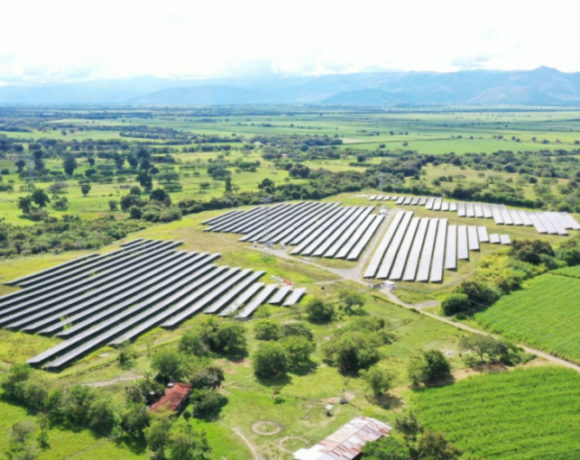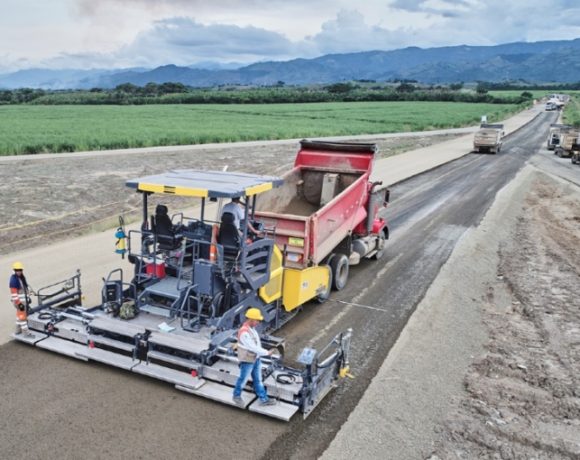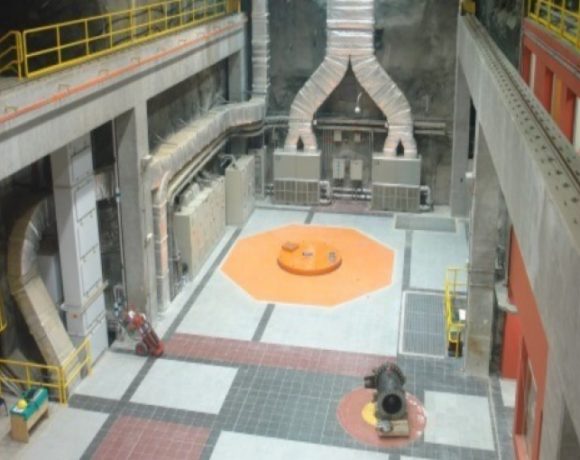Continental Gold Boosts Investment in Socially Responsible Mining in Antioquia

Toronto, Canada-based Continental Gold on September 26 unveiled its first-ever “sustainability” report outlining efforts in favor of environmentally and socially responsible gold mining – mainly at a US$600 million development project at Buriticá, Antioquia.
Industrial-scale gold production at Buriticá is expected start in 2019, averaging 253,000 ounces per year over a predicted 14-year mine life, according to Continental.
According to the report, Continental recently boosted efforts to “address small-scale mining in a manner consistent with human rights and formulate a constructive co-existence model,” in order to help more small-scale, illegal miners to convert to legal mining, while also helping to undercut environmentally destructive and criminal mining.
“One of the most challenging situations we dealt with throughout 2015 was the presence of illegal small-scale mining at Buriticá,” according to the report. “Following an emerging regulatory framework in Colombia, the company moved to formalize some local small-scale miners.”
In addition, “we have been working closely with our security contractors to maintain high standards and to ensure the protection of company personnel and property.
“To help reduce the potential for such incidents, we have been following Colombian regulation on the use of private security providers, which includes human rights and appropriate-use-of-force training, as well as introducing good practices contained in the Voluntary Principles on Security and Human Rights — an international, multi-stakeholder initiative that addresses the interaction between security personnel and members of the public around projects where the rule of law and respect for human rights may be lacking,” according to the company.
As part of its efforts to boost miner safety, Continental recently achieved the Occupational Health and Safety Assessment Series (OHSAS) 18001 standard certification; provided some 10,000 hours of worker training; and coordinated technical training to approximately 600 members of local communities, according to the company.
“Today, over 200 small-scale Buritiqueño miners are working under the terms of formalization sub-contracts executed with the company, and we are actively finalizing plans to increase the number of formalizations for local miners going forward,” according to Continental CEO Ari Sussman.
“We currently have over 350 direct employees which makes us one of the largest single employers in Western Antioquia and we are aligning our social investment to train local community members for the jobs we will need in the near future, during the construction phase of the new mine, and throughout its life-cycle.
“Local employment opportunities are expected to increase subsequent to the receipt of our final environmental permit amendment near the end of the current year or early in 2017,” Sussman added.
Conservation International Deal
According to the company, ensuring safe drinking water is a crucial element to the Buritica mining project – in sharp contrast to illegal and criminal mining, which recklessly dumps toxic mercury into water and soil, harming both people and wildlife.
Because of this environmental threat, Continental signed a new agreement with Conservation International “to protect water sources in Western Antioquia,” Sussman added.
This project will “identify areas that contribute ecosystem services, harbor wildlife species and have great diversity and abundance of flora species in the basin of the La Tesorero stream in Buriticá,” according to the company.
“The agreement also envisages creating a tool to pay for these ecosystem services, focusing on the areas in the immediate vicinity of our projects,” according to Continental.
The company also is launching agro-industrial training projects to help families in mining areas diversify their income streams.
As for its social investment, “we are working on three themes: education and culture, sustainable development and social productivity,” added Continental president Mateo Restrepo Villegas.
“In recent years, we have made investments of more than US$2.4 million in communities in the region, including the Tabacal Youth Home, the Higabra Community Center and the renovation of Buriticá’s central park.
“We have carried out many other projects in the region, including programs aimed at supporting local suppliers and have partnered with public and private institutions to improve community living conditions,” Restrepo concluded.
Environmental Projects
According to the report, environmental management programs focus upon water management, air quality and noise management, solid- and hazardous-waste management, chemicals management, promoting biodiversity (including restoration of disturbed forest habitats) and energy/greenhouse gas management.
“To minimize discharge water, we treat the water to meet the applicable water quality standards and regulatory and permitting requirements before safely discharging to surface waters,” according to the report.
“We use five primary chemicals in our operation, all of which are handled with care to ensure there is no impact to worker health and safety, the safety of our communities or damage to the environment, including:
“• Sodium cyanide – commonly used in gold processing in very diluted form to dissolve gold from mined rock;
“• Zinc dust – added to the gold-bearing, diluted sodium cyanide solution to precipitate the gold as a solid;
“• Hydrogen peroxide – used as an oxidizer;
“• Ferric sulphate – used to help treat water prior to discharge; and
“• Hydrated lime – used to increase pH in the gold recovery process,” according to the report.
Forest Restoration
In 2015, biodiversity initiatives included a “collective planting exercise with 40 students enrolled in middle school environmental management courses. The exercise was part of an agreement we signed with the Mayor’s Office, Santa Gema school and SENA,” according to the company.
Continental also signed two conservation agreements with property owners in the Colchones stream basin, “which supplies water for the district of Mogotes’ aqueduct. A total of 1,000 native trees were planted in the region to benefit the stream’s protected areas and thereby improve the medium- and long-term quantity and quality of the stream’s water.”
The company also “restored 12 hectares and planted 4,000 native trees to conserve protected areas as part of the activities proposed in the Yaraguá mine’s environmental management plan.”
In addition, Continental “raised 500 carob-tree seedlings at the Higabra greenhouse and relocated 200 diomato trees as part of forest-clearing activities. These are native species of significant ecological relevance to the region, as they provide food for the fauna, restore the soil and protect local rivers and streams,” according to the company.
Butterfly Conservation
The report also points out that Continental “implemented a butterfly breeding and conservation program, in which children in the community each receive a caterpillar to care for and support until it becomes a butterfly. The butterflies are then released near the children’s homes or school. 300 children from Buriticá participated from the Los Asientos, Murrapal, El Naranjo, Higabra and Mogotes districts, as well as 50 people from our Medellín office,” according to the company.
Strategic Partnerships
In addition, Continental has signed “strategic partnership” agreements with a score of organizations including SENA (government training institute); ICBF (family protection institute); Proantioquia (for promotion of responsible mining practices); Canadian Federation of Municipalities (sharing information on successful oversight of mining); Alliance for Responsible Mining (to promote “Fairmined” international standards); and the Colombian Mining Association (to promote local sourcing of services and supplies).
“The quality of life of the communities of Buriticá, Cañasgordas, Giraldo and Santafé de Antioquia has been precarious, and our proposed Buriticá mine can contribute to its improvement,” according to the report.
To help boost economic development, Continental also is supporting five new projects:
1. Muleteers: A business unit providing mule transportation for the company and suppliers;
2. Confecciones Buga: A family-owned company that manufactures work clothing for Continental Gold employees;
3. Professional music groups: Assistance is provided to maintain the region’s musical tradition. Sponsored groups participated in the ‘Traditional Folk Music Festival’;
4. Café Panorama: A family-owned coffee-growing company in the district of Sincierco, which now supplies coffee to the company; and
5. Asociación de Mujeres en Acción por Buriticá (Association of Women in Action for Buriticá): A women’s grass-roots organization that now provides food and catering for Continental Gold employees, according to the company.
















